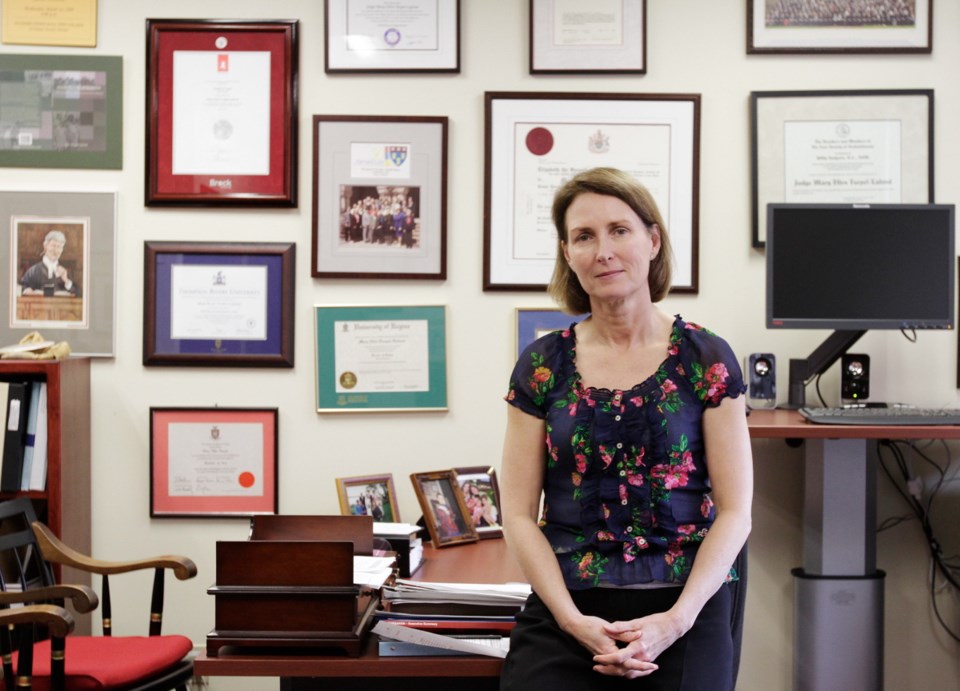As members of the Board of Victoria Women’s Transition House Society, and in the wake of the recent tragedies in which children were murdered in our community, it is imperative that we write and speak publicly about the need to do more to protect women and children from domestic violence.
Provincial ministries are responsible for legislation, policies and service delivery that touch the lives of these women and children. We are writing to offer a statement about the seriousness of domestic violence, and the critical need to implement policy and legislative changes necessary to ensure systemic change.
Intimate-partner violence, more commonly known as “domestic violence,” is not a private family matter or a “women’s issue.” It is the responsibility of our entire society to stand up and take notice. Women and children are losing their lives, in tragic circumstances, and there is a danger of this continuing because the systems needed to prevent these tragedies have not been fully implemented. There is not enough integration and information-sharing among service providers.
When women face violence in their relationships, their children are also at risk. Abusers use their own children to leverage power over the family, and when this power and control results in murder, we ask ourselves, where did we go wrong? What signs or red flags did we miss? Was it preventable?
Extensive inquiries and research have found that this kind of violence is always preventable. Recommendations on how to better protect women and children have been well documented. We know what needs to be done; now is the time for government to bring its full attention to this most serious social, economic and health issue.
In Merritt in 2008, Allan Schoenborn killed his three children. The risk factors were obvious, including his unstable mental health and addictions. Vital information about these risks was not shared among agencies interacting with the family. When speaking of the tragedy, Mary Ellen Turpel-Lafond, B.C.’s then-representative for children and youth, stated: “Today, we still see unaddressed disconnects between systems that so urgently need to be working closely together in domestic-violence situations — child protection, income assistance, mental health and judicial systems.”
The resulting investigation and report on these deaths, Honouring Kaitlynne, Max and Cordon, Make Their Voices Heard Now, uncovered that in the week before the slayings, 14 professionals worked with the family, and Schoenborn was arrested three times. The report stated that the loss of these children is heartbreaking, and even more so because they were preventable deaths.
In Oak Bay in 2009, Christian Lee, his mother, Sunny Park, and his grandparents were murdered by Christian’s father, Peter Lee. In speaking about this incident, Turpel-Lafond said that child-welfare, criminal-justice and family-justice systems are far too often not working together in domestic violence cases. Vital information about the safety of this family that could have prevented their deaths was not communicated among agencies.
As a result of the inquiry into the Christian Lee tragedy, the Regional Domestic Violence Unit was established. Victoria Women’s Transition House Society participates in the unit. It is a remarkable example of an integrated model that works across jurisdictions to help protect women and their children who are victims of domestic violence.
Yet again, in Oak Bay in 2017, we learn of more tragedies. Chloe and Aubrey Berry were allegedly killed by their father, Andrew Berry. In the Rutland area of Kelowna, Jacob Daniel Forman was charged with the murder of his two children and their mother.
Investigations by the office of the B.C. representative for children and youth have not yet been determined. If investigations do proceed, an eight-month timeline to report is anticipated. Only after documented evidence is gathered will we know if the warning signs were once again missed, and of the implications for the family-justice system.
The board of the Victoria Women’s Transition House Society implores the provincial government, particularly the child-protection, criminal-justice and family-justice systems, to work together to address the risks and incidences of domestic violence. Best practices in the field should be implemented by all organizations working with women and their children. Management structures should be formalized to enable professionals with common objectives to identify high-risk factors and co-ordinate their work, sharing critical information through a centralized protection system.
Let us mobilize to co-ordinate and collaborate as experts. Let us be part of the change that is desperately needed in our communities, across all government agencies and non-profit societies. The Victoria Women’s Transition House Society strongly urges the B.C. government to advocate for the protection of women and children in our society by eliminating systemic deficiencies, so that history does not continue to repeat itself.
Ardys Baker chairs the board of directors of the Victoria Women’s Transition House Society. She writes on behalf of the board.



